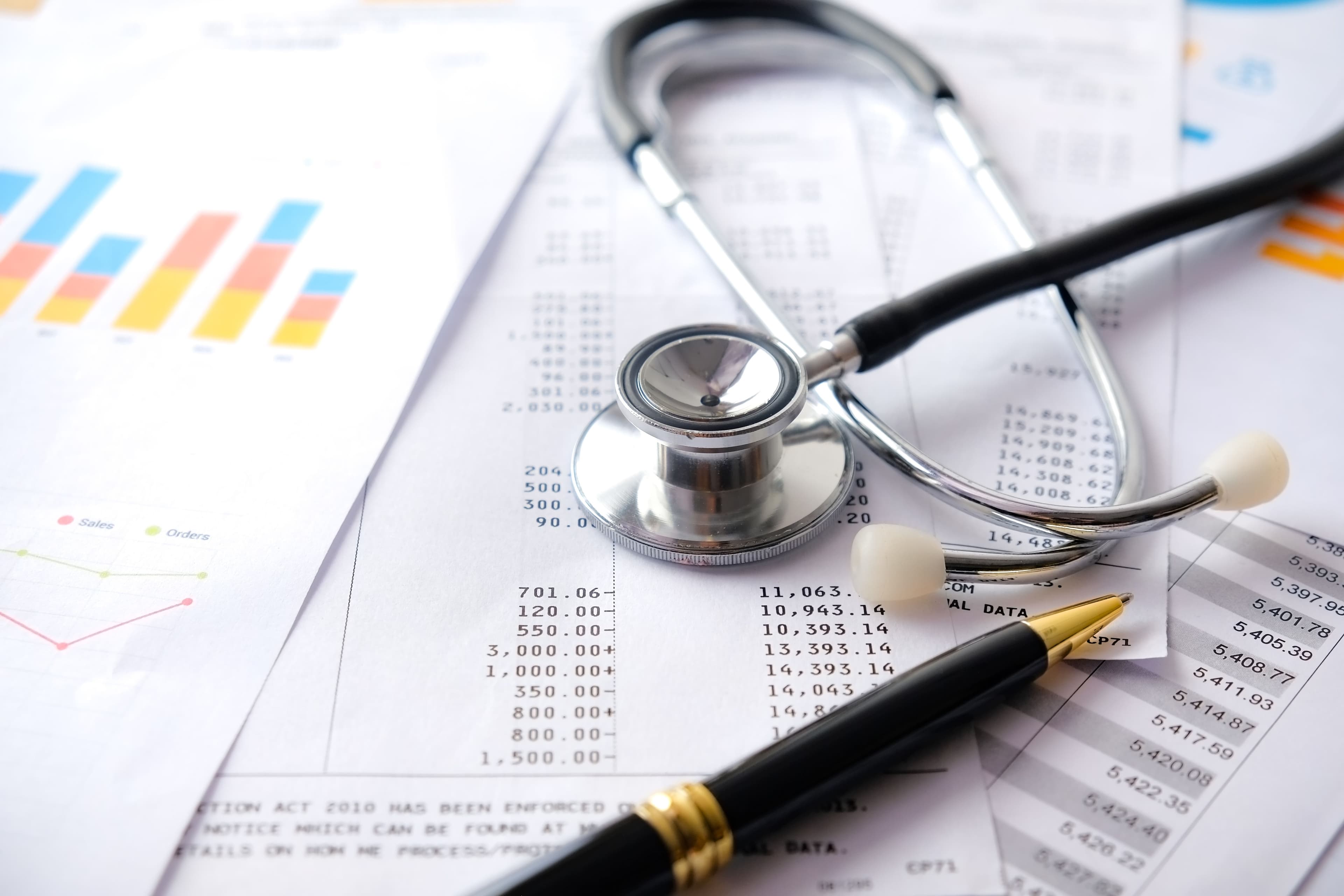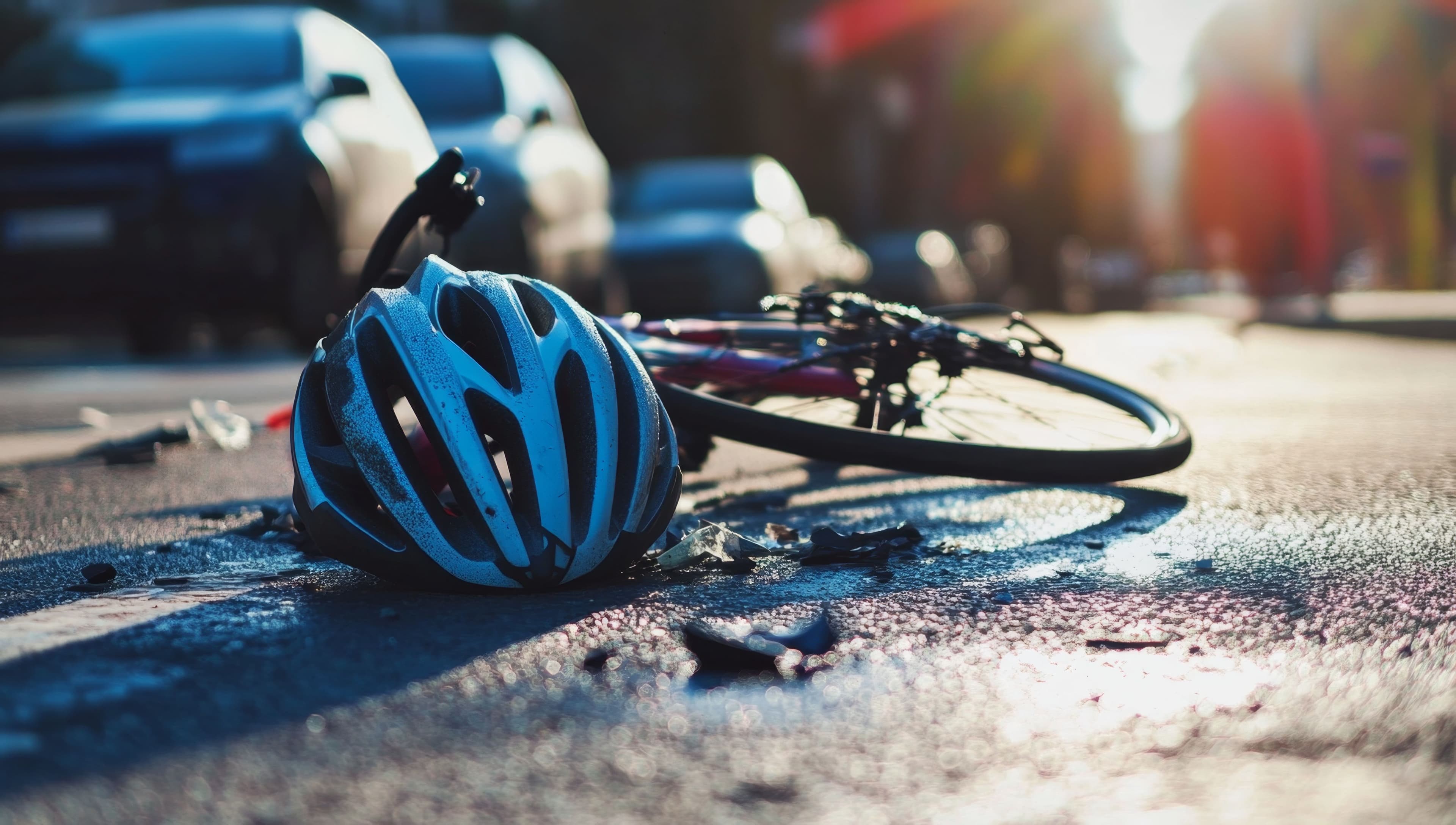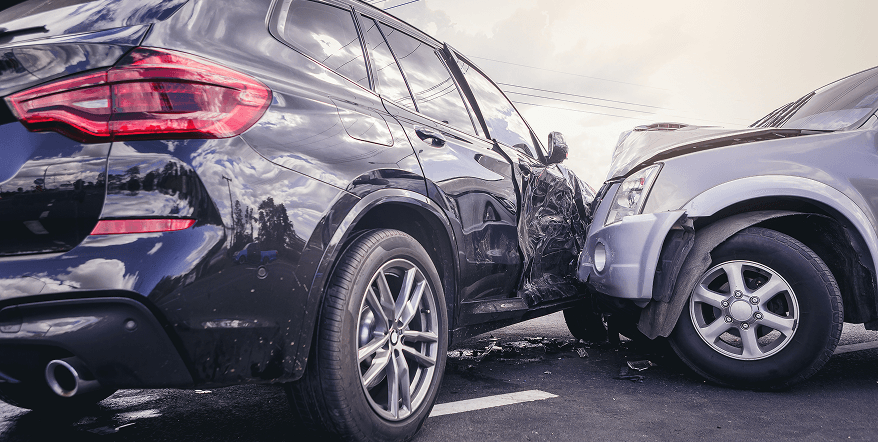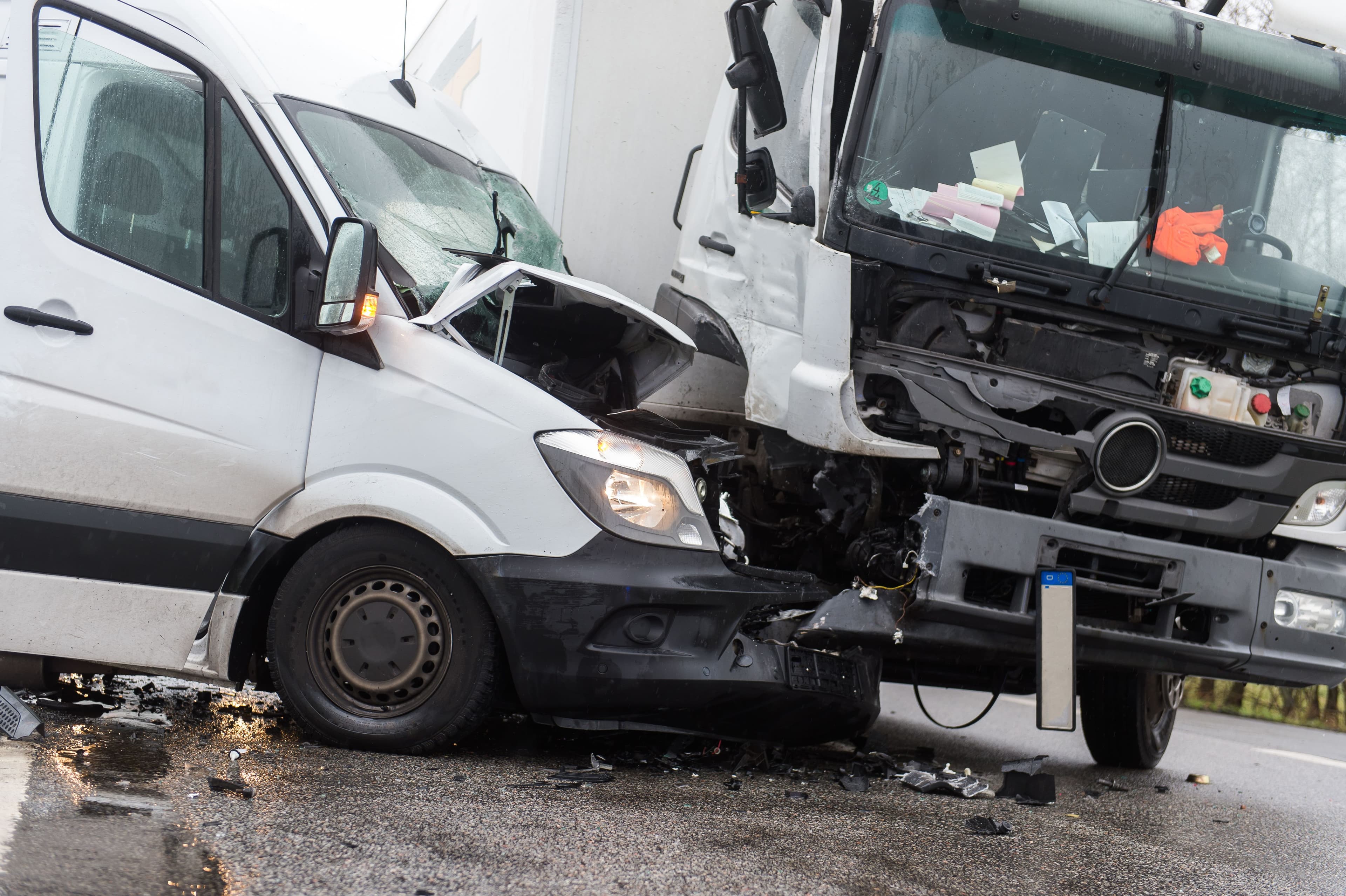In Pennsylvania, your medical bills are paid first by your own auto policy’s Personal Injury Protection (PIP), regardless of fault. PIP covers initial treatment up to your policy limits—typically without copays or deductibles.
The at-fault trucking company’s insurer does not pay bills as they come in; it pays, if liable, through a settlement or verdict after the case concludes.
Pennsylvania’s no-fault framework is designed to keep care moving while liability is resolved. In practice, PIP pays first, your health insurance assumes coverage when PIP is exhausted, and your injury claim then seeks reimbursement from the trucking insurer for accident-related medical costs (subject to liability, coverage limits, and any lien paybacks).
Below, our experienced West Chester truck accident attorneys are going to explain that flow—from immediate PIP benefits to final recovery—and the steps to protect your coverage and maximize your outcome.
Who Pays First For Truck Accident Medical Bills In Pennsylvania?
In Pennsylvania, your auto policy’s Personal Injury Protection (PIP) pays first for crash-related care—no-fault, billed directly by providers, and typically without copays or deductibles—until your selected limit is used.
After that limit is reached, your health insurance covers ongoing treatment under its plan rules.
The trucking insurer does not pay as bills arrive; it reimburses accident-related medical costs only at the end of the case through a settlement or verdict. In practice, the order is PIP first, then your health insurance, and finally the trucking insurer at case resolution.
Don’t delay treatment—Pennsylvania’s system is designed to ensure immediate coverage while fault is resolved.
Who Pays If You Do Not Own A Car Or Are A Pedestrian?
If you don’t own a car but were hurt by a truck, you still get PIP medical coverage under Pennsylvania law. The state has rules about which insurance company must provide your benefits based on your situation when the accident happened.
If you live with a family member who owns a car, their auto insurance provides your PIP coverage. If you were riding as a passenger in someone’s vehicle when the truck hit you, that vehicle’s insurance covers you.
For pedestrians and bicyclists with no other coverage available, the at-fault truck’s insurance must provide PIP benefits.
Your Situation
Who Provides PIP Coverage
Live with car-owning relative
Relative’s auto policy
Passenger in friend’s car
Host vehicle’s policy
Pedestrian or cyclist
At-fault truck’s policy
No available coverage
PA Assigned Claims Plan
Pennsylvania’s Assigned Claims Plan is a safety net when no PIP applies, offering limited benefits—$5,000 medical and $15,000 additional damages (with offsets)—administered by an assigned insurer.
What Happens When PIP Runs Out?
Because truck accidents can result in serious injuries, it is not uncommon for medical bills to surpass the $5,000 minimum PIP limit. When your PIP benefits are exhausted, your regular health insurance becomes the primary payer for ongoing medical treatment.
At this point, you’ll face your health plan’s normal deductibles and copays.
Your auto insurance company will send you an “exhaustion letter” when your PIP runs out. You must give this letter to all your medical providers immediately so they know to start billing your health insurance instead.
Keep this letter and all your medical bills and insurance statements – these documents prove your damages later.
Medical bills that neither PIP nor health insurance covers are called “excess medical bills.” These unpaid amounts become part of your injury claim against the trucking company.
Our experienced attorneys at Wilk Law Personal Injury & Car Accident Lawyers can help you track these costs and include them in your settlement demand.
How Do Health Insurance And Medical Liens Work In Pennsylvania?
When your health insurance pays for truck accident injuries, they want their money back from your settlement. This legal right is called subrogation. Your health insurer will place a medical lien on your settlement to ensure they get repaid for what they spent on your care.
Subrogation prevents double payment of the same medical bill. Your settlement is meant to cover your actual losses—medical costs, lost wages, and so on. After that, your health insurer is reimbursed for the amounts it already paid toward those bills.
This way, you’re covered for what you truly owed, and overall insurance costs stay in check.
Different types of health insurance have different reimbursement rights:
- ERISA Plans: Employer-sponsored plans with strong federal protection
- Private Insurance: Standard health plans with negotiable liens
- Medicare/Medicaid: Government programs requiring mandatory payback
- Workers Compensation: Takes priority over other coverage for work injuries
Our skilled West Chester personal injury attorneys can often negotiate these medical liens down significantly. This puts more money in your pocket from your final settlement.
Do Providers Have To Accept PIP Rates Under Act 6?
Yes, Pennsylvania’s Act 6 law requires medical providers to accept reduced payment rates from PIP coverage as payment in full. Under Pennsylvania’s Act 6, medical providers are required to accept the reduced payment rates established for PIP claims and cannot ‘balance bill’ you for any difference while your PIP coverage is active.
This law protects you from overwhelming medical bills during your recovery. Emergency care may be subject to different reimbursement rules under Act 6, which can result in higher payments to providers than for other types of treatment.
Providers cannot demand upfront payment if you have active PIP coverage.
Act 6 also prevents providers from sending you to collections while your PIP claim is being processed. If a provider tries to collect from you directly while you have PIP coverage, contact your auto insurance company immediately.
Treatment from out-of-state providers may not fall under Act 6 protections.
Will The Trucking Company Pay My Medical Bills Now Or Only After Settlement?
Only after settlement or a verdict. Trucking insurers wait until fault is resolved and your losses are fully documented before paying.
How do my bills get covered in the meantime?
- Your PIP benefits pay first, up to your selected limit.
- Your health insurance then covers ongoing care under its plan rules.
Get treatment promptly—this structure exists so you aren’t forced to delay care.
What happens at the end of the case?
The trucking insurer may reimburse accident-related medical expenses up to policy limits and consistent with liability and Pennsylvania law. Health plans and PIP carriers may assert liens or subrogation, which are resolved from the settlement.
Does Limited Tort Affect Medical Bills After A Truck Crash?
Limited Tort does not affect the handling of your medical bills after a truck crash. It restricts recovery of non-economic damages, including pain and suffering. Full Tort permits claims for the full range of losses.
In either case, you can still seek reimbursement of medical expenses from the at-fault party. Given the severity of many truck crashes, exceptions often apply that permit pain-and-suffering claims.
What Medical Expenses Can I Recover After A Truck Accident?
You can seek compensation for any reasonable, necessary care tied to your crash injuries. That includes the obvious—hospital and surgery bills—but also many costs people overlook.
Keep every receipt and jot down each expense, even the small ones. Over-the-counter meds, parking at the doctor’s office, and mileage to and from treatment add up and can be part of your claim.
Common recoverable medical expenses
- Emergency room care and ambulance transport
- Hospital stays and surgical procedures
- Follow-ups with your doctor and specialist consults
- Physical therapy and other rehabilitation services
- Prescription drugs and medical supplies
- Durable medical equipment (wheelchairs, braces, crutches)
- Home or vehicle modifications needed for a disability
- Travel to medical appointments (mileage, parking, tolls)
- Future medical care, therapies, and potential surgeries
- Counseling or therapy for trauma and related mental health care
Your attorney will coordinate with your providers and, when needed, medical experts to map out future care. Truck-crash injuries often require long-term treatment, so those projected costs should be documented and included in any settlement.
What Steps Should I Take Now To Protect Coverage And Prevent Collections?
Act promptly after a truck accident. Doing the basics the right way makes sure your medical bills are paid by the proper insurers and never head to collections. Each step is there to prevent the errors that lead to unpaid bills and credit problems.
Notify Your Auto Insurer And Get A PIP Claim Number
Call your auto insurer as soon as possible to report the crash. They’ll assign a PIP claim number, which your doctors need to bill the right way. Make the call even if the truck driver is obviously at fault.
Give Providers The Correct PIP Billing Information
At every medical visit, give providers your auto insurance information and PIP claim number, not your health insurance card. Tell them specifically to bill your auto insurance first. Wrong billing creates delays and potential collection issues.
Request Itemized Bills And Keep EOBs
Request itemized bills from each provider and keep every EOB your insurers send. The itemized bill is the line-by-line statement showing exactly what the provider billed; the EOB (Explanation of Benefits) is your insurer’s notice—not a bill—showing the allowed amount, what insurance paid, and your share (copay, deductible, coinsurance).
Together, these documents spell out the charges, the insurance payments, and your out-of-pocket costs—key proof for your claim.
Avoid Recorded Statements And Low Early Offers
Never give recorded statements to the trucking company’s insurance without legal counsel present. These statements can be used against you to deny your claim. Early settlement offers never account for future medical needs or the full value of your case.
Ask About Letters Of Protection If You Lack Coverage
If you don’t have insurance, some providers will treat you under a letter of protection (LOP)—an agreement to wait for payment from your eventual settlement. Not every provider accepts LOPs, but they can be a lifeline when you’re uninsured.
Send A Spoliation Letter To Preserve Truck Data
Black-box data and driver logs don’t last long. Our team sends a spoliation letter immediately so the carrier must preserve those records. Keeping that data can make the difference in establishing liability and case value.
Can I Recover If I Was Partly At Fault?
Being partly at fault doesn’t automatically end your claim. In Pennsylvania, you can still recover unless your fault is over 50%. Whatever amount you win is reduced by your percentage of fault.
However, if you are found to be more at fault than the other parties involved, you may not be eligible to recover compensation for your damages.
Trucking companies routinely try to shift blame onto victims to reduce their payouts. They might claim you were speeding, distracted, or violated traffic laws. Having strong legal representation protects you from unfair fault allegations and ensures you get maximum compensation.
Do Truck Insurance Limits Help Cover Major Medical Bills?
Because federal rules require interstate trucking companies to carry far higher liability limits than passenger vehicles, there’s usually more coverage available when a crash causes serious injuries.
Carriers that haul hazardous materials may need policies up to $5 million, which is meant to account for the greater risk large trucks pose on the road.
That matters because the size and weight gap between trucks and cars often leads to life-changing injuries—traumatic brain injuries, spinal cord damage, multiple fractures—and the hospital, surgery, and rehab bills in those cases can easily climb into the six- or seven-figure range.
Those higher insurance limits are designed to meet that level of need and help cover major medical bills in severe truck accident cases.
Knowledgeable Semi-Truck Accident Lawyers in Pennsylvania
Serious truck accident injuries upend everything. While you’re trying to heal, insurers push for statements, denials, and discounts. We step in. At Wilk Law Personal Injury & Car Accident Lawyers, our job is to block those tactics and make sure your medical bills are handled correctly.
We’ll line up your coverage, negotiate liens, and build your claim against the trucking company. Our firm has recovered millions for clients in West Chester, Philadelphia, Reading, Coatesville, Pottstown, and more. You owe nothing up front—our fee comes only if we win.
Let us take the weight off. We front the case costs and manage the legal strategy so you can focus on recovery. Reach out today for a free consultation.
FAQ
Do Medical Bills Come Out Of My Settlement?
Medical bills paid by your health insurance typically must be repaid from your settlement, but an experienced attorney can often negotiate these amounts down significantly to maximize your recovery.
Will The Trucking Company Pay My Bills While My Case Is Pending?
No. Trucking companies pay only at the end—through a settlement or verdict—so you should rely on PIP first and then your health insurance for immediate care.
Can I Recover Medical Bills If I Used My Health Insurance?
Yes. You can seek recovery of all accident-related medical expenses, including amounts paid by your health insurer, as well as your out-of-pocket costs like copays and deductibles. Any health-plan liens or subrogation claims will be addressed from the settlement.
What If I Do Not Have Auto Or Health Insurance Coverage?
You may still receive treatment through letters of protection with providers who agree to wait for payment, or through the at-fault truck’s PIP coverage if you were involved in a pedestrian accident.
Will PIP Cover Emergency Room Bills Without Copays?
Yes. While your PIP coverage is active, it typically pays 100% of emergency care—ambulance and ER—with no copays or deductibles, up to your policy limits.
Can Medical Providers Send Me To Collections While PIP Is Active?
No. While your PIP claim is being processed, providers should not send you to collections or demand payment. They must accept Act 6 rates as payment in full.
How Does Workers Comp Affect Medical Bills From A Truck Crash At Work?
Workers’ compensation becomes primary over PIP for work-related truck accidents, but you can still pursue a third-party claim against the trucking company for full damages.
Can My Underinsured Motorist Coverage Help Pay Medical Bills?
Yes—when the truck’s insurance isn’t enough, UIM coverage can provide additional funds for your medical expenses and related damages, up to your policy limits after the at-fault insurer pays its maximum.
Related Articles
How a Pennsylvania truck accident lawyer assists with your claim
Why truck accident claims or more complex than car accident claims




